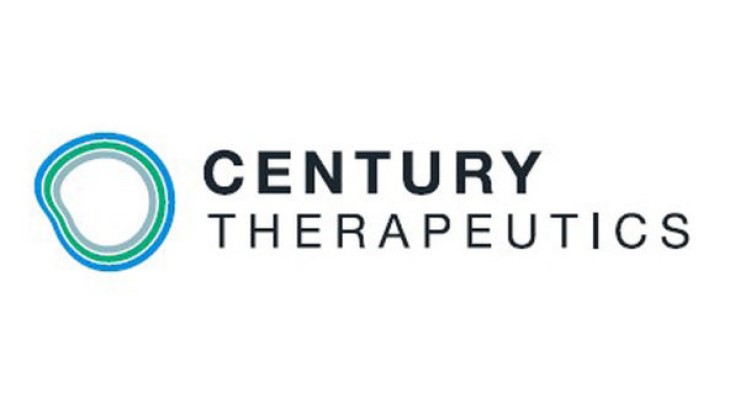World
Century Therapeutics Launches Ambitious iPSC Program for Diabetes

Century Therapeutics, Inc. (NASDAQ: IPSC), based in Philadelphia, has announced a significant expansion of its therapeutic pipeline with the introduction of a new program aimed at treating Type 1 diabetes (T1D). The program, known as CNTY-813, utilizes induced pluripotent stem cell (iPSC) technology and is expected to enter Investigational New Drug (IND)-enabling studies by the end of 2025. An IND submission is anticipated as early as 2026.
CEO Brent Pfeiffenberger expressed optimism about the program, describing the preclinical data as a “tremendous opportunity to potentially deliver a functional cure for T1D.” The data indicates robust glucose-normalization results, durable insulin production, and advances in immune-evasive engineering, which is supported by the company’s proprietary Allo-EvasionTM 5.0 technology.
Pipeline Developments and Other Programs
Alongside CNTY-813, Century Therapeutics confirmed that its CD19-targeted CAR-iT program, CNTY-308, remains on track for a clinical trial initiation in 2026. This program aims to treat B-cell mediated diseases and is progressing through its own IND-enabling studies. The CAR-iT therapy is engineered to achieve functional parity with primary T cells, positioning it as a potential solution for a wide range of B-cell driven disorders.
The company also continues to advance CNTY-101, which is undergoing an investigator-sponsored Phase 1/2 trial, known as the CARAMEL trial, led by researchers at Friedrich-Alexander University Erlangen-Nürnberg. Initial clinical results from this trial are expected to be released on December 5, 2025. As part of a strategic reprioritization, Century has decided to discontinue its CALiPSO-1 trial, despite favorable preliminary safety data across five treated patients.
Financial Performance and Future Outlook
In its third quarter financial results, Century Therapeutics reported a cash position of $132.7 million, a decrease from $220.1 million at the close of 2024. This capital is projected to sustain operations through the fourth quarter of 2027. Research and development expenses declined to $22.5 million from $27.2 million in the previous year, reflecting reduced personnel and manufacturing costs, alongside increased lab expenses aimed at advancing preclinical and clinical programs.
General and administrative expenses also saw a reduction, dropping to $6.8 million from $8.4 million, largely due to a $1.4 million gain from a lease modification. Despite these efforts, the company reported a net loss of $34.4 million for the third quarter, compared to a loss of $31.2 million during the same period last year.
With two major programs advancing toward clinical readiness, Century Therapeutics is focusing its resources on therapies that have the potential to deliver “high-impact, potentially curative outcomes” for patients suffering from autoimmune and metabolic diseases. The company’s emphasis on innovative treatments could reshape the landscape of diabetes care and other related disorders, pending regulatory approval.
-

 Science2 weeks ago
Science2 weeks agoUniversity of Hawaiʻi Joins $25.6M AI Project to Monitor Disasters
-

 Business3 weeks ago
Business3 weeks agoForeign Inflows into Japan Stocks Surge to ¥1.34 Trillion
-

 Top Stories3 weeks ago
Top Stories3 weeks agoBOYNEXTDOOR’s Jaehyun Faces Backlash Amid BTS-TWICE Controversy
-

 Top Stories3 weeks ago
Top Stories3 weeks agoMarc Buoniconti’s Legacy: 40 Years Later, Lives Transformed
-

 Health4 weeks ago
Health4 weeks agoInnovative Surgery Restores Confidence for Breast Cancer Patients
-

 Sports1 month ago
Sports1 month agoSteve Kerr Supports Jonathan Kuminga After Ejection in Preseason Game
-

 Top Stories3 weeks ago
Top Stories3 weeks agoCarson Wentz Out for Season After Shoulder Surgery: Urgent Update
-

 Science1 month ago
Science1 month agoChicago’s Viral ‘Rat Hole’ Likely Created by Squirrel, Study Reveals
-

 Lifestyle1 month ago
Lifestyle1 month agoKelsea Ballerini Launches ‘Burn the Baggage’ Candle with Ranger Station
-

 Entertainment1 month ago
Entertainment1 month agoZoe Saldana Advocates for James Cameron’s Avatar Documentary
-

 Politics1 month ago
Politics1 month agoDallin H. Oaks Assumes Leadership of Latter-day Saints Church
-

 Lifestyle1 month ago
Lifestyle1 month agoDua Lipa Celebrates Passing GCSE Spanish During World Tour









